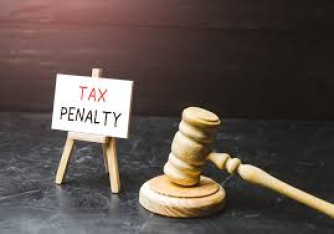Understanding Consumer Rights: Fixing Credit Report Errors
Consumer credit reports play an essential role in your financial life. These reports, maintained by credit bureaus, provide lenders, employers, landlords, and others with important information about your creditworthiness. However, errors in credit reports can and do occur often, leading to serious consequences such as denied loans, higher interest rates, and limited access to financial opportunities. It is crucial to understand your rights and the processes available to correct inaccuracies.
Credit bureaus are responsible for maintaining accurate and up-to-date credit information, but like any system, mistakes happen. Incorrect information can be caused by clerical errors, identity theft, or outdated records. Such inaccuracies can reflect negatively on your credit history and overall financial standing.
What is the Fair Credit Reporting Act (FCRA)?
The Fair Credit Reporting Act (FCRA) is a federal law enacted to protect consumers and ensure fairness, accuracy, and privacy of the personal information contained in the files of consumer reporting agencies. It establishes your right to access your credit report, dispute inaccurate or incomplete information, and have errors corrected or removed in a timely manner.
Under the FCRA, credit reporting agencies must provide you with a free copy of your credit report once every 12 months upon request. Additionally, if you have been denied credit or employment based on information in your report, you are entitled to receive a free copy within 60 days.
How to Obtain Your Credit Report
Obtaining your credit report is the first and most important step in fixing credit report errors. You are entitled to one free report from each of the three major credit bureaus annually: Equifax, Experian, and TransUnion. You can request your reports online at AnnualCreditReport.com, by phone, or by mail.
- Visit AnnualCreditReport.com to order your credit reports from all three bureaus.
- Alternatively, call the toll-free number 1-877-322-8228 to request your report by phone.
- You may also send a written request by mail including your full name, Social Security number, date of birth, current address, and previous addresses, along with a copy of a government-issued ID.
Once you receive your reports, review each one carefully to identify any errors or inconsistencies.
Common Types of Credit Report Errors
People often encounter various types of inaccuracies in their credit reports. Understanding the common errors can help you spot them more efficiently.
- Wrong personal information such as incorrect name, address, or date of birth.
- Accounts that do not belong to you or that you have already paid off.
- Duplicate accounts, which artificially inflate your debt.
- Incorrect account status such as accounts reported as delinquent or in collections when they are current.
- Outdated information, such as debts that should have dropped off the report after seven years.
- Fraudulent accounts opened by identity thieves.
Steps to Dispute Credit Report Errors
If you find errors in your credit report, it is important to act promptly to have them corrected. Follow these steps to dispute inaccuracies effectively:
- Write a detailed dispute letter to the credit bureau(s) reporting the error. Include your full name, address, and copies of documents supporting your claim.
- Clearly identify each item you are disputing and explain why the information is incorrect.
- Send your dispute via certified mail with return receipt requested to have proof of delivery.
- Also notify the creditor or furnisher of the information in dispute by sending them a similar letter and documentation.
- Keep copies of all correspondence, dispute letters, and supporting documents.
What Happens After You Dispute an Error?
Once the credit bureau receives your dispute, they are required by the FCRA to investigate the claim, usually within 30 days. They will forward all relevant information you provided to the information source (creditor or furnisher). After completing their investigation, the bureau must provide you with the results in writing and a free copy of your credit report if the dispute results in a change.
If the bureau finds the disputed information inaccurate, it must be corrected or removed promptly. However, if they verify the information as accurate, it will remain on your report, and you have the option to add a statement of dispute to your file.
Additional Tips for Dealing with Credit Report Issues
- Regularly check your credit reports from all three bureaus to stay informed of your credit status.
- Consider placing a fraud alert or credit freeze on your file if you suspect identity theft.
- Work directly with creditors to resolve outstanding debts and inaccuracies.
- Keep detailed records of all your financial documents and communication related to your credit report.
- Understand your rights under the FCRA and do not hesitate to seek legal assistance if errors are not corrected.
When to Seek Legal Help
If despite your efforts, credit bureaus fail to correct mistakes or you face unlawful treatment related to your credit report, consulting with a consumer law attorney can help protect your rights. Legal experts can guide you through the process of filing complaints with the Consumer Financial Protection Bureau (CFPB), taking action against fraud, or pursuing damages for violations of your rights under the law.
Our team at Legal Marketplace CONSULTANT is committed to assisting consumers in navigating the complexities of credit report disputes. We offer professional legal consultations and representation tailored to your unique situation. Reach out to us via the communication links in our bio or send a private message for confidential assistance.
Errors on your credit report can have detrimental effects on your financial wellbeing, but you have the power to correct them. By understanding the FCRA, proactively reviewing your credit reports, and following the dispute process in writing, you can help ensure that your credit information is accurate and fair.
Regular vigilance, thorough documentation, and knowledge of your rights are key. Should issues persist, do not hesitate to seek proper legal guidance to protect your consumer rights and financial future.
Legal Marketplace CONSULTANT is a specialized legal firm offering comprehensive support to individuals facing credit report issues. Our experienced team of attorneys and consultants is dedicated to ensuring your consumer rights are upheld and that you receive the assistance needed to maintain accurate credit records.































